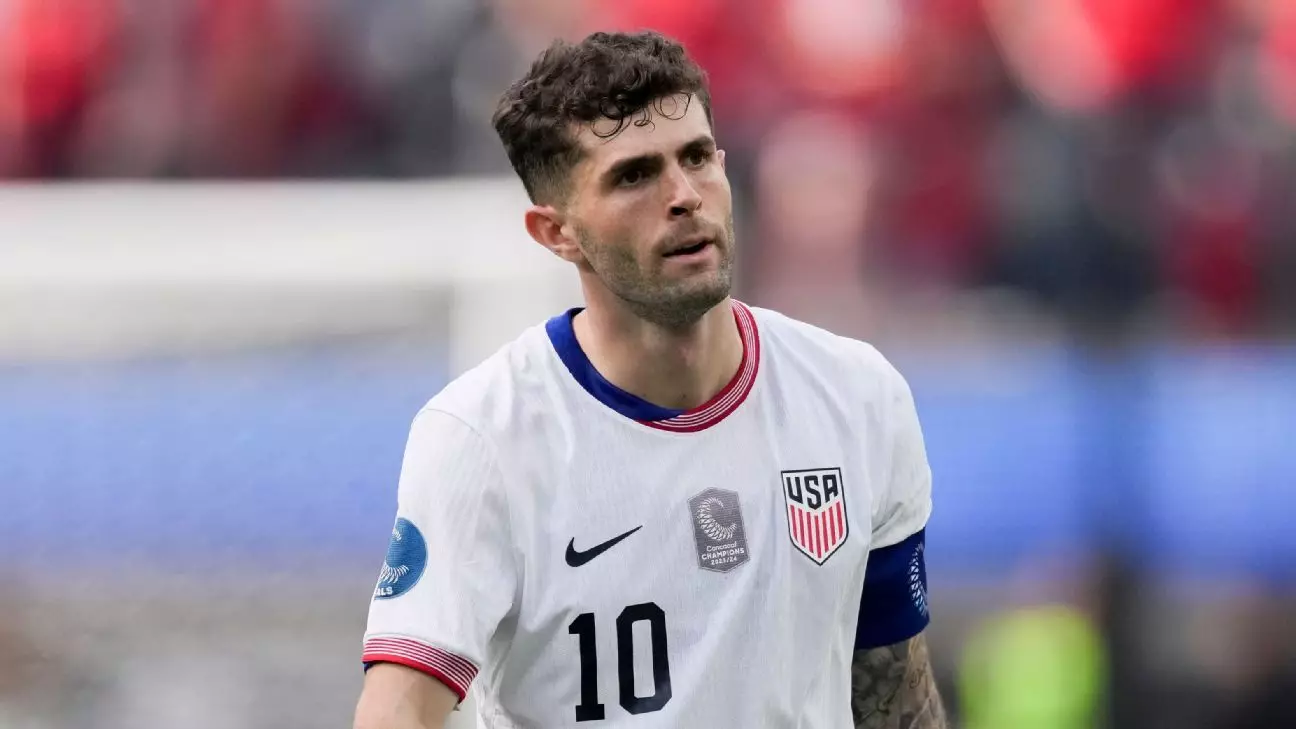The soccer world is no stranger to heated debates, especially when it comes to the decisions of its star players. Recently, Christian Pulisic became the focal point of a controversy involving U.S. soccer legends Landon Donovan and Alexi Lalas. With the Gold Cup on the horizon, Pulisic, who has just completed a demanding season with AC Milan, opted to sit out the tournament to prioritize rest and mental recovery. This decision did not sit well with Donovan, who aired his grievances while broadcasting the UEFA Nations League final, drawing a stark contrast between Pulisic’s choices and the fierce dedication displayed by players like Cristiano Ronaldo.
Criticism from former athletes often carries significant weight, especially when coming from icons of the sport. Donovan’s remarks regarding the importance of representing one’s country and the value of commitment to the national team reflect the traditional mindset surrounding professional sports. However, it brings to light a larger discussion regarding the physical and mental toll of competitive athletics in today’s world.
The Reality of Athlete Burnout
In an era where athletes are pushed to their physical limits, the concept of burnout has gained considerable attention. Athletes today face pressure not only to perform but also to maintain a façade of perpetual readiness. Pulisic’s decision to prioritize his well-being by stepping back from the Gold Cup can be seen as a progressive move, one that acknowledges the necessity for mental health alongside physical fitness. Burnout, a state of chronic stress, can have dire repercussions—not just on a player’s performance but on their overall health.
Mark Pulisic, Christian’s father, addressed Donovan’s critique by referencing a pivotal moment from Donovan’s own career—a sabbatical period that led to his omission from the 2014 World Cup squad. This highlights the irony of criticism coming from someone whose own career was shaped by the need for personal breaks. It underscores the message that rest and mental recovery are often as crucial as rigorous training and competitive play.
The Evolving Landscape of Sports Culture
The landscape of professional sports is fast evolving, and with it, the understanding of what it means to be an athlete. The stigma around players taking time off for their mental and physical health is slowly dissolving, replaced by a greater acceptance of the need for self-care. As fans and pundits, our responsibilities extend beyond simply demanding performances; we should also advocate for the holistic well-being of the players we idolize.
Critics may argue that stepping away from national duties compromises team cohesion, especially with the upcoming World Cup in mind. However, having a stable, focused, and mentally sound squad is vital for long-term success. The foundation of any outstanding team lies in a collective sense of readiness, which can be hindered by players who are not fully engaged due to exhaustion or mental strain.
Reassessing National Pride and Personal Choice
National pride in sports often invokes a set of expectations that can overshadow the individual needs of players. The intense scrutiny players face for their decisions can create a toxic environment that affects their performance and well-being. Pulisic’s choice to rest should not be interpreted as a lack of commitment; rather, it should be seen as a mature decision aimed at ensuring he can contribute effectively when he returns.
In sports, as in life, the balance between personal obligation and public expectation is delicate. The bottom line is that every player must assess their own situation and make decisions in a way that serves their long-term career. As we cheer for our national teams, it is crucial to support players in their choices and recognize the underlying complexity of their decisions.
Confronting a Culture of Criticism
The backlash against Pulisic’s choice underscores a prevailing culture of criticism that can stifle open conversations about the challenges of being a professional athlete. It’s essential for the sports community—fans, players, and pundits alike—to engage in these discussions with empathy and understanding. While the spirit of competition is necessary to drive excellence, the mental health of athletes should never be treated as secondary to their performance on the field.
Ultimately, it’s time for the narrative surrounding athletes and their personal choices to evolve. When individuals like Pulisic prioritize their mental and physical health, it sends a powerful message that self-care in sports is not just acceptable but necessary. The conversations sparked by this controversy could lead to a healthier, more supportive environment in professional sports, one where athletes feel empowered to take the time they need—whenever they need it.

Leave a Reply